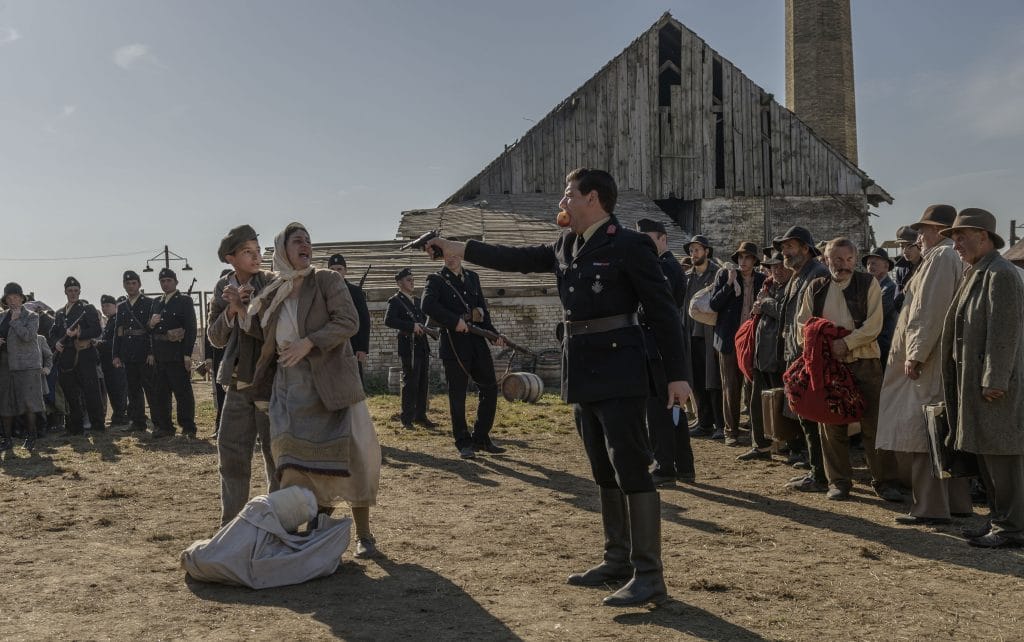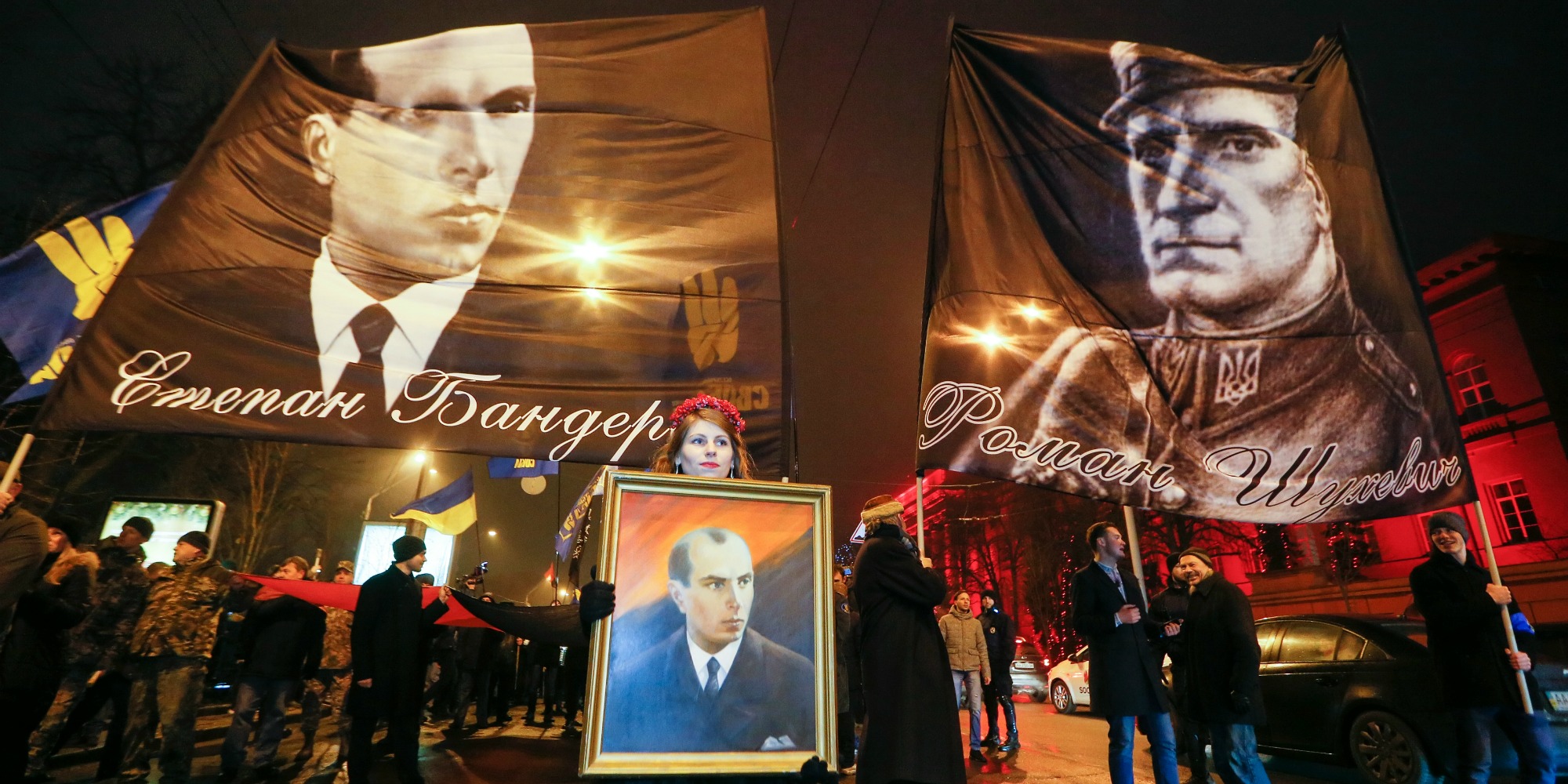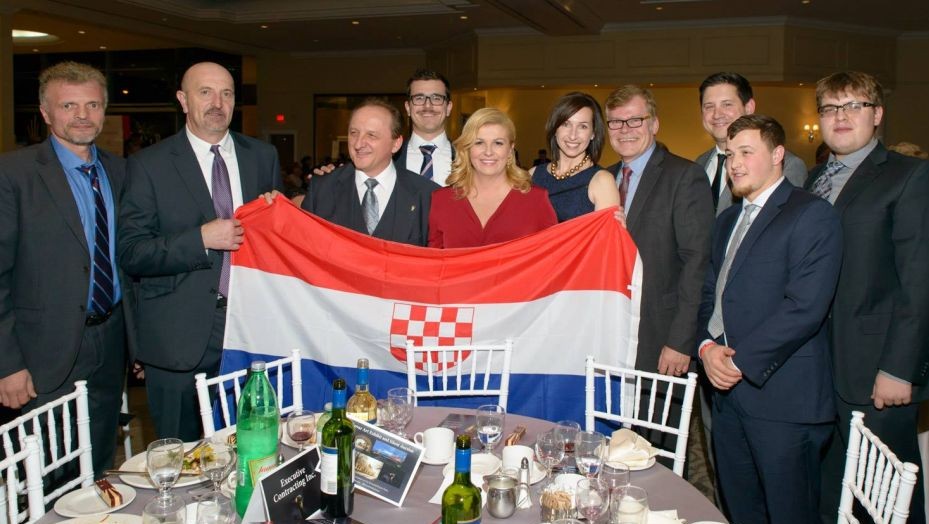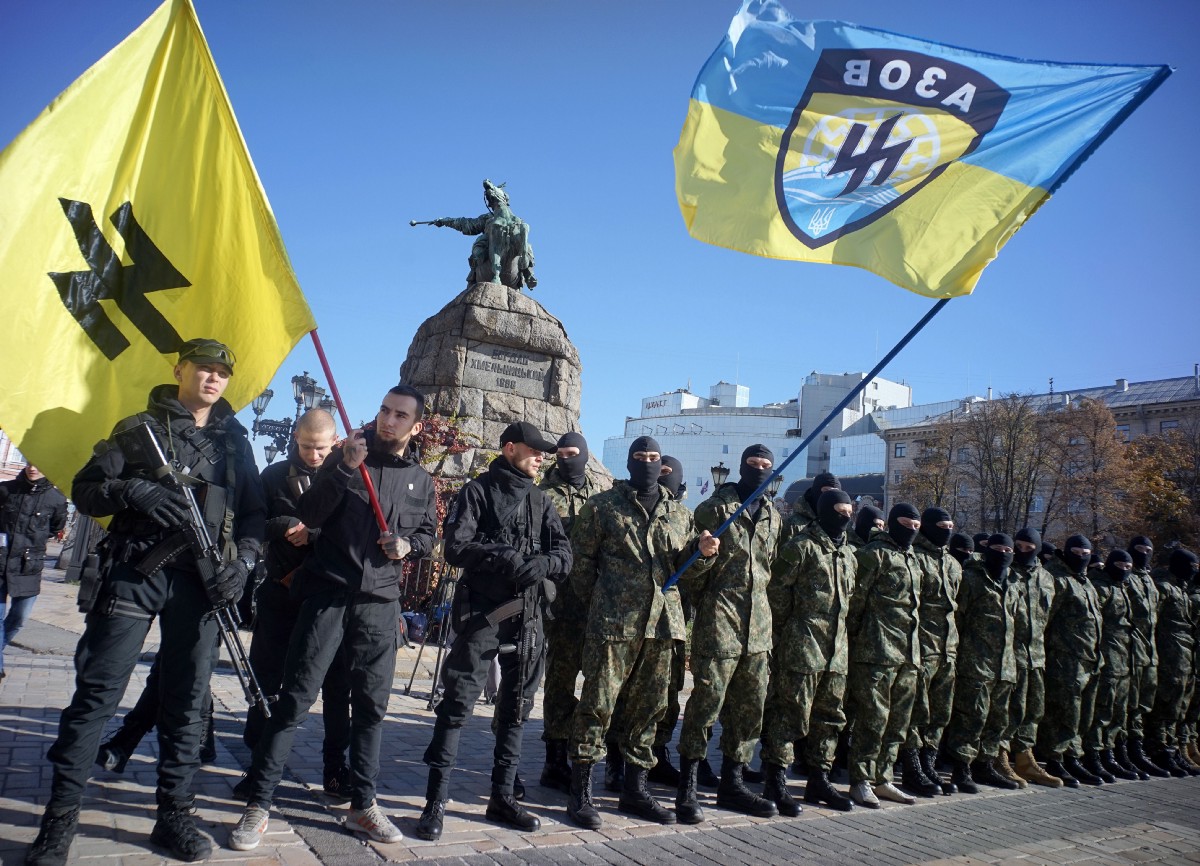
Zagreb, Independent State of Croatia, 1941
Views: 2429
 Jasenovac – Croat run death camp
Jasenovac – Croat run death camp
The consumption of history seems to be more widespread than ever: from general-interest history magazines and historical dramas and documentaries to historical fiction, popular history seems, well, unprecedentedly popular.
The evolution of the TV historian reflects this trend: where once real working historians who had written serious books hosted television programmes, these days they are as likely to be photogenic media presenters with minimal, if any, actual history qualifications.
The attraction of history and being a historian are not hard to work out. In the public imagination, historians are usually considered to be intelligent, objective people, if a little eccentric, who tell us fascinating facts about the past but also important things about the present too.
Existing at the intersection of social science, humanities and art, historians not only reconstruct the stories of ordinary people, but get to give their opinions about contemporary issues, above all national ones. What’s not to love?
Two events in recent weeks related to memory and the Holocaust in Croatia made me think about this again – what it means to be a historian and how perceptions of history have changed in recent years, particularly in the formerly socialist states of Central and Eastern Europe.
 Kiev 2017: Celebration of the leaders of a Nazifascist movement of the WWII Ukraine
Kiev 2017: Celebration of the leaders of a Nazifascist movement of the WWII Ukraine
First, there was the controversy caused by the laudatory review of Igor Vukic’s revisionist study of Jasenovac concentration camp, ‘Radni logor Jasenovac’ (‘Jasenovac Labour Camp’) by the critic Milan Ivkosic in the mainstream Vecernji list.
In his book, Vukic denies that the Ustasa-run Jasenovac camp was a place of extermination. Instead, he insists that it was a re-education and labour camp in which only political enemies of the Ustasa regime were imprisoned and one which provided prisoners not only with opportunities to learn new skills but cultural and sporting activities too.
Elsewhere, members of Vukic’s revisionist Society for the Research of the Threefold Jasenovac Camp have repeatedly – and falsely – claimed that in the post-war era, under the Partisans, Jasenovac continued to operate, this time as a real extermination camp, for Croats.
What was most striking about Ivkosic’s review of the Jasenovac book was the language he used to describe its supposed qualities. He described Vukic as a “calm observer, completely devoted to the facts” and the book itself as making an “enormous contribution” to the research of the “truth” of Jasenovac, free of ideological bias and “Greater Serbian and Communist falsifications”.
This followed closely after the news that Vlatka Vukelic, a historian of medieval Croatia and classical civilisation who has endorsed revisionist claims about the existence of a post-war extermination camp as well as a number of other Ustasa nostalgic canards about wartime Croatia, had been contracted to teach the history of the Nazi-allied Independent State of Croatia to undergraduate students at the University of Zagreb.
This is hardly the first time the University of Zagreb has hired academics with a problematic relationship to the Ustasa regime and the Holocaust. Nor, as illustrated by the example of Volodymyr Viatrovych, the director of the Ukrainian Institute of National Remembrance, is this an exclusively Croatian problem.
Like Vukic’s book about Jasenovac, Viatrovych’s heavily-criticised studies of the Organisation of Ukrainian Nationalists (OUN) and the Ukrainian Insurgent Army have been framed in the language of scholarly ‘objectivity’ and similarly relied on selective archival sources to build their revisionist arguments.
Today, the history of the Holocaust in Eastern Europe is characterised, to an unprecedented degree, by nationalist agendas: within that basic framework, the history of Ukraine and Croatia have become particularly poisonous.
While the experiences of Ukraine and Croatia were not identical, the impact of the occupation and the role of local collaborators for the Jews, Roma and other ‘undesired elements’ (in the case of Ukraine Poles and Russians, in the case of Croatia, Serbs) was similarly catastrophic.
Although the academic backgrounds of Vukic and Viatrovych are somewhat different – Vukic is a former journalist and self-described historian while Viatrovych holds the equivalent of a doctorate in history – their output is proving increasingly influential among a section of their respective audiences for a number of reasons.
First, individuals and organisations which want to believe that the Ustasa or the OUN were the ‘good guys’ in the story of the Second World War are naturally going to be receptive to the distorted version of history they are pedalling. More importantly, though, the archival approach taken by Vukic and Viatrovych looks superficially legitimate.
The fact that it isn’t since it invariably involves stripping archival sources of the context in which they were written, removing the bits which don’t fit with the story they want to tell and ignoring sources that undermine their narrative won’t be noticed by consumers of such books who will associate the use of archival sources with real knowledge and expertise.
 Croatia’s President Kolinda Grabar-Kitarović in Canada photographed with the flag of the WWII Nazifascist Independent State of Croatia
Croatia’s President Kolinda Grabar-Kitarović in Canada photographed with the flag of the WWII Nazifascist Independent State of Croatia
Although the popularisation of history has been a potentially positive development in many respects, it has failed to bring a greater understanding of how historical methodologies work. Historians of Eastern Europe and the Holocaust, with their fetishisation of the archives, haven’t helped in this regard, helping to reinforce the impression that archival research is inherently reliable research.
This is particularly the case in South-Eastern Europe where history and political science students are taught how to use archives from the moment they start their undergraduate studies and often even before this point.
But history always has been and always will be about far more than using archives. Archival sources are as contradictory, misleading and freighted with sleight of hand as any other kind of source. There is no mystery to them either: using them requires no special expertise.
There is also no guarantee that what comes out at the end of the process will be ‘history’ in any meaningful sense of the word. If you cherry-pick data, as Holocaust revisionists do, then what is produced will be basically worthless in empirical terms.
Nor is a Holocaust revisionist who uses archival sources suddenly transformed into a historian simply by virtue of using an archive no more than a person who likes reading books can be considered a novelist.
They remain a Holocaust denier who has simply used archival sources. The expertise lies in being able to interpret what is meant by the sources, avoiding bias and getting inside the mindset of those who wrote them. It’s why grad school exists.
If pseudo-historians certainly profit from the popularisation of history and the increasing view that anyone can be a historian, they have also been fortunate in operating in an extremely receptive climate.
While it is true that some Croatian historians have been outspoken in combatting the culture of lies promoted by the revisionists and in exposing their shoddy, amateurish methods, many of the most prominent critics are not actually historians of the Ustasa regime or the Holocaust.
Meanwhile, too many historians of the Independent State of Croatia elsewhere in Europe or the US – and here there is a striking contrast with Ukrainian Holocaust history – have not made any meaningful effort to push back against the mounting revisionism: in some cases, they have actually helped the revisionists’ cause by seeming to endorse some of their claims.
Of course, the rewriting of history could be stopped tomorrow if the government in Croatia wished to do it, but the toleration of Ustasa nostalgia is ruthlessly pragmatic and cynical.
All the main Croatian political parties believe, to a greater or lesser extent, that they need the electoral support of the far right hence their toleration of and even pandering to Holocaust denial. At the same time, they are aware of how damaging it is for Croatia’s image, thus explaining the current government’s scarcely credible insistence that no such problem with Holocaust revisionism exists.
If the introduction of the kind of anti-Holocaust and genocide denial laws that exist in Germany and certain other European states is unrealistic, counter-productive and likely to raise profound questions about the limits of free speech, historians can play their part by communicating complex ideas in an imaginative, accessible and above all emotionally-engaged form to the public.
Too much current history writing on the Ustasa regime in newspapers – for example, on the anniversary of the establishment of the state – is intellectually obscurantist, divorced from the experiences of the real individuals who suffered occupation and terror and not relatable to ordinary Croats.
They also need to make the public more aware of what history is and what it is not. What it certainly is not is deciding on an ideological viewpoint and then selecting evidence to support it.
 Croatia today: A Croat family in the WWII Nazifascist Ustashi uniforms
Croatia today: A Croat family in the WWII Nazifascist Ustashi uniforms
History is multi-layered, complex and full of contradictions for the simple reason that history is the story of individuals, the circumstances in which they lived and died, the decisions they made and the ways in which they interacted with each other and society.
Historians do not and should not come with ideological frameworks: they undertake only to work with the traces of the lives individuals left behind – archives, newspapers and journals, personal artefacts, diaries, letters – and to tell their stories as completely as they can.
Writing history requires imagination, empathy, intellectual flexibility and an overriding commitment to go where the data lead you even when that doesn’t fit with your preconceptions, prejudices or research assumptions.
Holocaust revisionists in Croatia, like those in Ukraine and elsewhere, might be many things, including people who know how to order documents from archives, but what they are not is historians.
It is time that the media, commentators and, not least, academics stopped describing them as such.

Originally published on 2018-09-12
About the author: Rory Yeomans is a historian and member of the School of Historical Studies, Institute for Advanced Study at Princeton University, and the author of the book Visions of Annihilation: The Ustasha Regime and the Cultural Politics of Fascism, 1941-1945.
Source: Balkan Insight
Origins of images: Facebook, Twitter, Wikimedia, Wikipedia, Flickr, Google, Imageinjection & Pinterest.
Read our Disclaimer/Legal Statement!
Donate to Support Us
We would like to ask you to consider a small donation to help our team keep working. We accept no advertising and rely only on you, our readers, to keep us digging the truth on history, global politics and international relations.
 EuroMaidan Ukraine today: Azov Battalion with the Nazi insignia
EuroMaidan Ukraine today: Azov Battalion with the Nazi insignia








